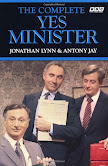The supreme example of the virtuoso use of the English language is, of course, in James Joyce's "Ulysses." Here are some other examples.
One of the most intriguing detective novels is Josephine Tey's "The Daughter of Time", where the author piles up historical evidence to debunk Shakespeare's portrayal of Richard the Third as a "dyed in the wool" villain. However in the opening pages of the novel, she describes devastatingly the standard plot structure of a popular novelist thus:
"Mother lying-in with her eleventh upstairs, father laid-out after his ninth downstairs, eldest son lying to the government in the cow-shed, eldest daughter lying with her lover in the hay-loft, everyone lying low in the barn."
Every shade of meaning of lying, lying-in, laid-out are explored in this lurid passage.
 The crucial importance of the correct prepositions is emphasised in "Yes, Minister." When the Minister is concerned about the possible abolishing of his own ministry, he visits the PM's private secretary & asks him whether the PM is smiling "on" the proposal & adding a threatening counter-move of his, if so. The private secretary, alarmed at this, suavely denies it saying the PM smiled "at" the proposal & not smiled "on" it, thereby completely reversing the meaning!
The crucial importance of the correct prepositions is emphasised in "Yes, Minister." When the Minister is concerned about the possible abolishing of his own ministry, he visits the PM's private secretary & asks him whether the PM is smiling "on" the proposal & adding a threatening counter-move of his, if so. The private secretary, alarmed at this, suavely denies it saying the PM smiled "at" the proposal & not smiled "on" it, thereby completely reversing the meaning!
Later, when Hacker became the PM himself, he tames Humphrey, with the help of his lady political adviser & Bernard, his private secretary. Afterward burying the hatchet, he tells Humphrey that he will call him "if" he needs him. Humphrey panics again, surmising that "if" may include "if not" also. At this Hacker taking pity, puts him out of his misery, saying "when" he is needs him, thus implying that he will be consulted & it is only a question of time!

No comments:
Post a Comment